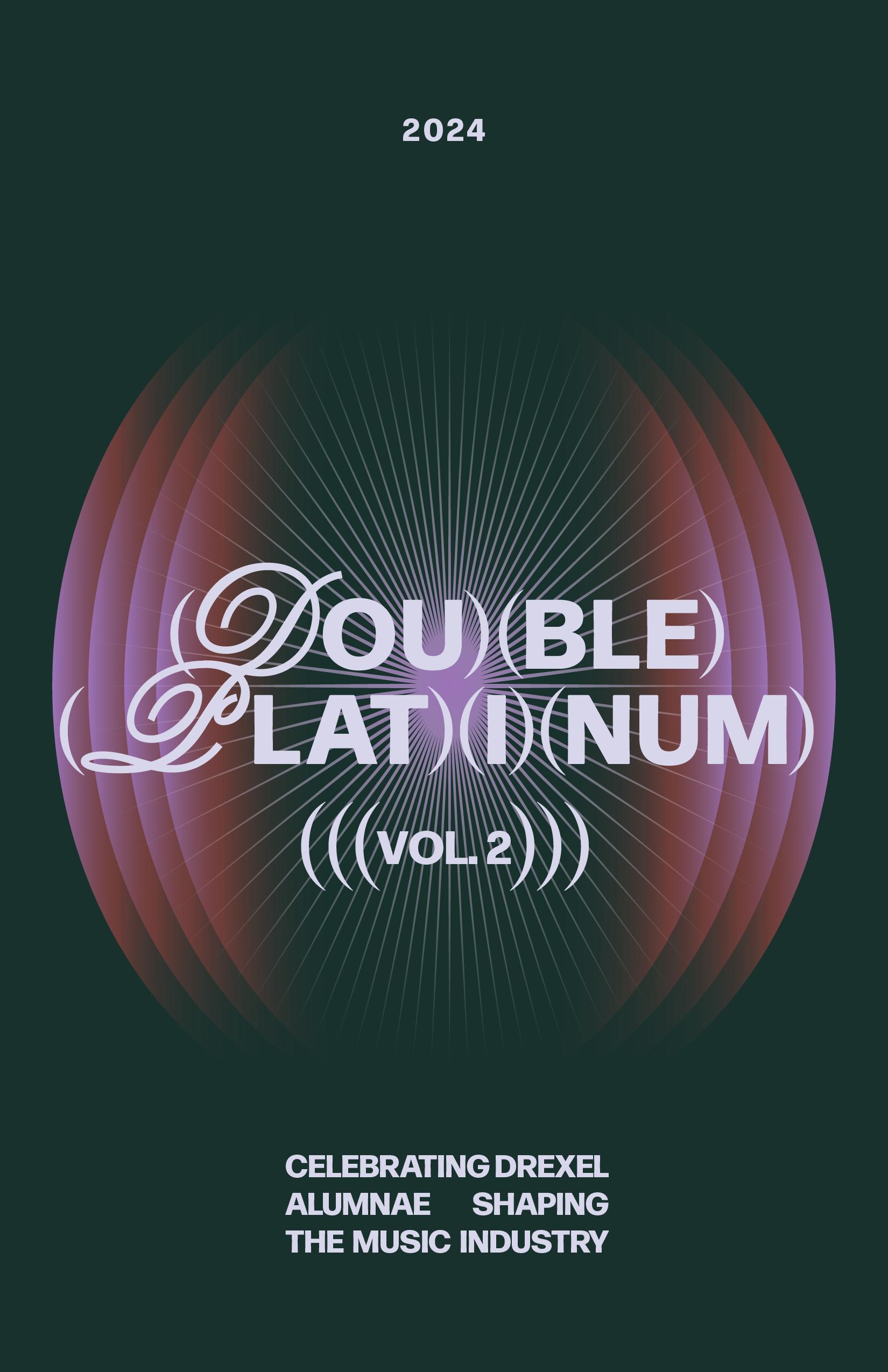

VOL.02 2024
I’m thrilled to present Volume 2 of Double Platinum, a series of interviews with Drexel University alumnae who are transforming the music industry, conducted by students in a course I teach called Women in the Music Industry.
When I read last year’s Double Platinum interviews, I was so moved and inspired by each alumna’s resilience, tenacity, and passion. This year it’s no different. Whether they graduated one year ago or twenty years ago, each of these individuals have meaningful perspectives and powerful advice to share. My hope is that these interviews provide guidance, inspiration, and encouragement to all who read them – regardless of their gender identity or career stage. For those who are part of the Drexel community, I also hope they invoke a sense of pride in the impactful contributions of our graduates.
The intention of this project was always to highlight the accomplishments of Drexel graduates and spotlight the topic of gender representation in the music industry; however, Double Platinum has grown into something so much more. I’ve seen it foster and strengthen a sense of community between alumnae and current students. I’ve witnessed alumnae generously offer their time to pay it forward and set an example for the next generation of individuals aspiring to work in the music industry. Creating positive change and advocating for more representation in the music industry is a long game, but if these interviews are any indication, I’m excited for what the future holds.
To present and future Dragons, and to those who wish to shape a better future for all in the music industry, join me in recognizing and celebrating the achievements of these Drexel alumnae, and continuing to support and empower the present and future leaders of this industry.
onika J ulien
B.S. Music Industry | Class of 2012
Assistant Teaching Professor, Music Industry Program
Drexel University
Antoinette Westphal College of Media Arts & Design
(1)
M
Anaya Cherry

T racklist
(05) (13) (15) (17) (07)
Class
(25) (27)
Class
Lambert
Kira Karlstrom Diana
Jayla Johnson Jen Corsilli
2022 Fame House
Deb Riccardi Olivia Timm Class of
of 2007 Twitch
of 2021 Universal Music Group
of 2022 Wasserman
of 2006 Live Nation
Class
Class
Class
of 2012 Fame House
of 2016 BMG
Class
racklist
Rachel Gagliardi

Stacie George
(21) (19) (22)
Mackenzie Mason
(29) (09) (11)
Caylie Landerville Melissa Newhart
Jade Winn-McNeil
*Interviews edited for length and clarity
(3)
2017
GreenRoom PR
2018
Light
of 2010 United Talent Agency
of 2023
Music Entertainment
of 2011 POUTY Class of 2003 Live Nation
Class of
The
Class of
Red
Management Class
Class
Sony
Class
Anaya Cherry
B.S. Entertainment & Arts Management | Class of 2022
ASSISTANT MANAGER, EXPERIENCE & SITE MERCHANDISING @ FAME HOUSE
☞ Philadelphia, PA
What got you into music? Do you think that’s the same thing driving you now?
My family. My family got me into hip-hop and hip-hop culture specifically. My parents met at a Method Man concert, and I am 24 years old now. Between that journey of me being here, my uncle was the first person to introduce me to some of my favorite artists. My grandma grew up in the house playing gospel, a lot of Anita Baker, and my mom loves Mary J. Blige and hip-hop soul specifically. That was the core of my upbringing, having music in the house. My nana had a piano in the house for the time that I got to experience her. She passed when I was 10. She had a piano, and I took piano lessons, but as I got older, I started to discover the internet. The internet has brought me some really great things, and one of those things is SoundCloud. I discovered SoundCloud and DJing, and from there, I thought of ways to put certain tunes and pitches together and wording. This really made me nerd out and cultivate my own music taste. Childish Gambino, Isaiah Rashad, and Tyler, the Creator are some of the core people I was growing up with who influenced me, on top of that, production, Iman Omari, core pieces to my mid-teenage years. And through that, I discovered DJing myself. I did that, on and off, for a few years, and now I have been doing it a bit more full-time these days.

you’re getting accustomed to. You’ve just gotta stay ready. Specifically for the Entertainment & Arts Management program, I credit a lot of my project work that I got to do in the program of just looking at artists, developing strategies, and thinking of different business plans and ways to activate. I’ve taken that with me to my day-to-day job.
You previously worked at Comcast as a Workforce Diversity & Inclusion Intern. Do you think that diversity in the workplace has improved over the last few years?
How did Drexel prepare you to work in your area of the music industry?
Drexel prepared me to stay ready, honestly. Drexel’s motto is “Ambition Can’t Wait,” and especially working in a field like the music industry where there’s constantly something happening, there are pre-planned rollouts that
I was a later teen when I worked in the workforce DEI department. This was during the time when I was super invested in diversity at my high school. My frame of reference at the time was being one of eight black students and trying to figure out different ways in predominantly white spaces to showcase and show up for people who don’t fit that mold. As I’ve gotten older, I’ve found myself in more diverse spaces. Just by the nature of where I work and all the stuff that I’ve worked on, it’s improved in some ways, but not so much in
00.00:00.00 00.00:01.00 00.00:02.00
other ways. What I will say is that competency about diversity and inclusion has improved. The people around me, if there is a potential issue or if there is something that’s going on in our environment, they’re able to call it out and speak up for it. That’s something I’m really grateful for.
You worked at REC Philly as a Programming Assistant during the pandemic. How do you think the production of live events has changed since the pandemic ended?
I think that not only from my experience with REC but also from my time with Made In America Festival and Roots Picnic, live events have changed from a consumer standpoint and working on set. There have been a lot of safety issues that have arisen – not only with COVID-19, but also with people not really knowing event etiquette. That has, for better or worse, changed the scope of live events. There are a lot of new opportunities to create activations and do a lot of really cool marketing that I’ve seen at live events, whether that’s a panel, showcase, or something as big as a festival. During the pandemic, when live events were on hold and we had to stay inside, people started thinking of innovations to change the scope of live entertainment. I hope one day to bring my innovations to life. It’s definitely changed in some ways, but there are opportunities for growth.
You have an event coming up, right?
I do – it’s called GOSHPIT. It’s a fem-hip hop rager. Essentially, it’s a space that is being cultivated for women and fems in the city specifically to listen to our favorite tunes and trap, but also sugar trap – Rico Nasty and Doechii and Doja Cat. But also have some Future and some Playboi Carti. Just a space for us to rage comfortably as opposed to feeling uncomfortable in certain spaces and experiences that people have had in Philly nightlife. It’s been something really close to my heart, and I’m really excited to put it out there.
What challenges have you faced as a black woman in the industry? What advice would you give to the up-andcoming women?
A big challenge that I’ve faced is being taken seriously. When you’re in spaces that require you to put yourself out there creatively, it can make you second guess and overthink whether what you’re doing is worth it and if your creativity is something to really share with the world. For me, I’ve had experiences where my work or my time hasn’t been taken seriously. One thing that I’ve learned with that lately is 9 times out of 10, it’s in my head; but also, just because I might feel that way due to past experiences doesn’t mean that I can’t speak up for myself and handle it as an adult in a mature manner. I’ve been the youngest in the room before and the only black woman in a room before…the only black girl. A lot of that comes with having to show up for yourself when no one else will. In creative industries, you have to do that ten times over.
What I’ve been doing more is speaking up for myself more and being more direct, as in “this is an issue that I see,” or “this is a cool idea that we could do,” or “this is what I want to do'' and just speaking up for myself more because it helps in the challenges that I’ve faced in the past of feeling inferior and feeling like I don’t belong. I am just trying to find my way when, in reality, my way has been my way for as long as it was my way. Speaking up for myself has helped with those challenges a lot.
Interviewed by Alex Slogoff (Class of ‘25) and Jamal Sample (Class of ‘25)
(5)
00.00:03.00 00.00:04.00
Jen Corsilli
M.S. Publications Management | Class of 2006 DIRECTOR OF MARKETING AND PROGRAMMING
@ LIVE NATION
☞ Philadelphia, PA
As a woman in a leadership position within the music industry, what challenges have you faced and how have you navigated them?
I think one of the hardest things to navigate is being taken seriously as a young woman. It is a unique situation where you need to prove yourself. Some people are superfans, and it used to be a negative thing. But now, with programs like Fan to Band, it is actually a good thing. People are willing to go great lengths to promote their artists.
Trying to get into the industry is the hardest thing. Finding the first opportunity to break in is the hardest. Networking is very important, and establishing a mentor in the industry is as well. I did an internship at the Trocadero Theater during my time at Drexel, and my mentor there was very honest and supportive. She gave me opportunities and a lot of support. She was willing to put her name behind me, and I try to do the same and give back as much as I can.
You have to have a passion to want to work the long hours, and it is a full commitment when you are part of the industry. Passion is a baseline to want to be part of the industry.
Given the ongoing discussions surrounding equity & representation in the music industry, how does Live Nation approach ensuring diverse and inclusive programming and marketing initiatives?
At Live Nation we have a director of diverse initiatives. Diversity goals are directly tied to new hires and internships. What has been cool to see is that they are starting to implement accelerator programs which are learning opportunities that focus on diverse groups. This summer, Live Nation is working with Black Music Action Coalition (BMAC) on a program that focuses on people not on a college path, giving them opportunities in the industry despite not being college-bound. Almost every internship in any industry is focused on students, so this way these professionals have an opportunity to learn. School of Live is the same concept. It focuses on people just getting into the industry. They are partnered with South LA school SoLa Tech, for the Live Nation Next Gen Program. In the Live Nation Philly branch, there are mostly women. I’ve seen a shift which is happening not just across Live Nation, but other companies as well. Festivals are also starting to focus on more diverse programming. An example is more Latin artists at Coachella. There is a wider range of artist representation these days.
Interviewed by Nicole Zahos (Class of ‘25) and Priya Kuruganti (Class of ‘26)
00.00:00.00 00.00:01.00 00.00:02.00
What do you consider to be your biggest accomplishment thus far in your career?
The first one was being able to work with Kevin Lyman and the final Warped Tour. I started going to shows when I was a kid, and being able to work on the final east coast run of Warped Tour was amazing. I was part of all the aspects of the planning and execution. It was very cool being able to work it from beginning to end. There were about 40,000 people there.
The second was programming during the pandemic. Something truly unique was during COVID when we got to do drive-in concerts at Citizens Bank Park. From the beginning, working with the state to see what was safe, like food and merch delivery to the vehicles to remain socially distanced, was so unique. This was the first time anyone had experienced anything like this all at once. Everyone came in wondering what was happening and it was interesting to see how people learned in real time. Over the course of 14 concerts, everyone adapted to a new culture and learned how to go to shows. It was crazy to see how people can adapt so fast.
How has your Master in Publications degree impacted your work in the music industry?
I did that program because I had done some work with publishing companies, but my background was more in graphic design. The most valuable things I learned were about accounting, budgeting, and finance. I deal with large scale projects and budget management so that helped. My final project for the program was actually about my internship at the Trocadero Theater, and the day I graduated, they hired me full time!
What
is your dream role in the music industry, and what steps are you taking to achieve it?
The biggest thing I wanted to do is teaching, and I am doing it now too. I stayed on coaching at Drexel for some time as well. I like giving back because I understand it is a tough industry to get into. I like educating people on what jobs are there. It isn’t just booking and marketing. Whether its facilities management or operations or stagehands or accounting. I love teaching, I am almost 10 years in. I would like to work towards doing more teaching. I also just really like working with interesting events. The bigger the event, the better. So, I am looking forward to the America250 in Philadelphia. That’s going to be a very big event, and an exciting time in the birthplace of America.

(7)
00.00:03.00 00.00:04.00
Rachel G agliardi
B.S. Music Industry | Class of 2011
POUTY, ARTIST
☞ Los Angeles, CA

through
your career as an artist?
The first thing that comes to mind would be collaboration. I feel like I’m still in touch with a lot of my Drexel friends. My current band –the current Pouty lineup – is mostly all Drexel alumni. I met most all of my band, people, friends, through either WKDU, going to shows, or just seeing each other at the dorms. I feel like if you can learn how to do collaboration well, you’ll go really far because it’s such a business that’s based on networking and schmoozing. I think it helps when it’s really organic. Like when I first got to school and I met all the Music Industry kids, I was so inspired because I went to a high school that was very performance arts heavy, but it was just regular public school. So this was the first time I ever really had met people that were super passionate, who had gear, software
programs, instruments. And so I feel like it was just so exciting to play together, go to shows together, record late night recordings in the lab. So I’d say creative collaboration is super crucial and definitely an amazing network in Philly and very grateful that I’ve been able to maintain that throughout the years. And yeah, I’d be nowhere without my creative collaborators and most of them I met at Drexel, honestly.
As a woman, how has the music industry changed from your time as a student to now?
My first band was a two-piece with my friend Nicole – so two women in a band. This is nearly 10 years ago. I would say it definitely felt a lot more tokenized. It definitely felt more gimmicky back then and people were obsessed with calling us a girl band or riot grrl and I see it as a blessing and a curse. I see it as people who are marginalized, women have been historically treated as unequal and have faced inequality. And I feel like at this moment, at this point in time, all the people who I think are crushing it are women. We have really risen up and there’s a lot of visibility and a lot more opportunities than there used to be, but I do feel like it’s hard to live in a world that is so gendered. I do feel like there were a lot of opportunities given to us just because we were women and then there were definitely spaces where we didn’t feel as welcome and as safe. Luckily, I play kind of like punk/indie music and I feel like that has always been a more socially conscious genre. I feel like I’m really grateful to that riot grrl scene in the 90’s grunge feminist movement because I think they broke down a lot of barriers and they gave us a lot more respect that created a path for a lot more respect for women in music. But I do still feel like there’s going to be people who aregoing to be close minded and prefer a band as four dudes on stage. So I think it’s always nice to be challenging expectations and, again, with the support, showing it’s possible to be a young
00.00:00.00 00.00:01.00 00.00:02.00
female in a punk band that’s touring all over. I toured internationally, I’ve toured in Australia and New Zealand… So I feel like there’s a long way to go but also I’m grateful to be where I was, when I was for sure.
Is there an experience you’ve had in the music industry
that maybe someone who isn’t a woman may not fully
understand?
Being a mom has made it clear how much harder I’m going to have to work and how much more I have to balance. Just the capacity is a lot different than my friends who are male, who don’t have a wife, who don’t have a kid, who can just kind of operate as a single person. I think women usually tend to take on a lot more emotions of people around them, and that can create distraction. So I’d say I feel like staying focused is crucial. Focused on who you’re trying to work with – don’t even bother working with people who aren’t listening, who aren’t taking you seriously, who think that you’re not capable. For whatever limitations you have, I’d say you have to just find the right people and stay super, super focused as a woman.
What is the relation between your mental health and your creative process and output? Does one affects the other? Does it go both ways?
I would say for me, music is so therapeutic and specifically songwriting, writing lyrics, journaling. I would say I’m more into the writing than anything else. I am not super technical and I’m not super into production…more so because I just don’t think I’ve had that phase yet. I would love to work with more female producers. I would love to be able to produce myself. But for me, songwriting is very heavily tied to my emotions, how I express myself, getting out a lot of the negativity.
I’d say performing is when I feel really stable, confident, and empowered. As a person who suffers from generalized anxiety disorder, depression, especially postpartum mood swings, I’ve had a lot of mental health struggles. I would be nowhere without music. Songwriting has been not only an outlet, but to be able to connect with other people who are either strangers or friends or fans that are like, “your music made me feel better. I see you. I relate to you.” That is the best way to feel like you are not alone and that you matter and that the struggles are worth it because I think of all the songs that have changed my life and shaped me and I’d be nowhere without them. So it feels really amazing to have that tool and that creative outlet of just feeling like I can do anything I want when I’m on stage, when I’m writing, when I’m in the studio. I’d say it’s probably the best thing for my mental health.
I just put out an album in February and it’s my first full length record and it took me a really long time to do that. I feel like I felt very discouraged at times and kind of felt silly and like, “I can’t do this. I’m not good enough.” And to have that record, it’s tangible. It’ll always be there. It’ll be there in 10 years. My daughter can listen to it when she’s older. It’s such a sense of pride for me and I think that’s the greatest gift you can give to yourself: a creative project you’ve completed. It’s like I feel like I can do anything, you know? So I feel like it gives me a lot of inner strength and clarity and just that connection.
Interviewed by Noah Kossowsky (Class of ‘25) and Parker Shaw (Class of ‘25)
(9)
00.00:03.00 00.00:04.00
S tacie G eorge
B.A. Business Administration, Marketing and Psychology | Class of 2003
SENIOR VICE PRESIDENT OF BOOKING @ LIVE NATION
☞ New York City, NY
Could you start off with telling us a bit about your Drexel experience?
I grew up outside of Philadelphia, and the reason I knew about Drexel was WKDU. I was definitely an outcast in high school, I didn’t really have a lot of friends. I hung out with the skaters and the punk rockers and that wasn’t cool - I went to Drexel from ‘98-2003, so ‘94-’98 that wasn’t “cool.” So, I escaped in my own head and just listened to music on WKDU in my bedroom all the time. And I said to my parents “I want to go to Drexel because I want to be on WKDU.” My parents were like “yea we can’t afford it, you’re going have to work really hard to get scholarships blah blah blah.” And I did!
I picked Drexel because I wanted to live in Philadelphia, go to punk rock shows, and be on the radio station. So I started off on the radio station and my first shift was from three to six in the morning and I was so proud and it was so fun. Because I was a DJ on the radio station, I collected a lot of records and vinyl and I started DJing with my friends around Philadelphia and we started doing dance nights.
I DJed at this one place called The Khyber in Old City, and as I was graduating from Drexel I literally thought I was going to keep going to school and become a psychiatrist. As I was graduating the owners of The Khyber were like, “Hey, you seem to bring a lot of people and we need a promoter. Do you ever think about booking bands?” I was like, “I’ve never even thought of that!” And they were like, “we’ll give you $300 a week, no health insurance.” I was like, “sign me up!” My parents were like “Are you kidding me? We sent you to Drexel and you’re just gonna book a dive bar?” But I did it, and I did so well that within three years, I had three venues.
After three years, Live Nation recruited me – it was all punk and indie rock, that was my background. Live Nation recruited me and asked me to be a club and theater buyer in Washington, DC. So I had to move to Washington, DC, and I did that for three years. Then, they asked me to move back to Philadelphia, where I oversaw the club and theater. So at the time, it was TLA, Festival Pier, The Tower, The Mann, and I helped open the Fillmore. Then the company asked to move me to New York, to oversee the clubs department. So I moved to New York to book Irving Plaza, and I just kept moving up. Now I oversee the team, and I have a team that books Mercury Lounge and Bowery Ballroom and we book all the way up to the stadiums. I do it all, at this point.
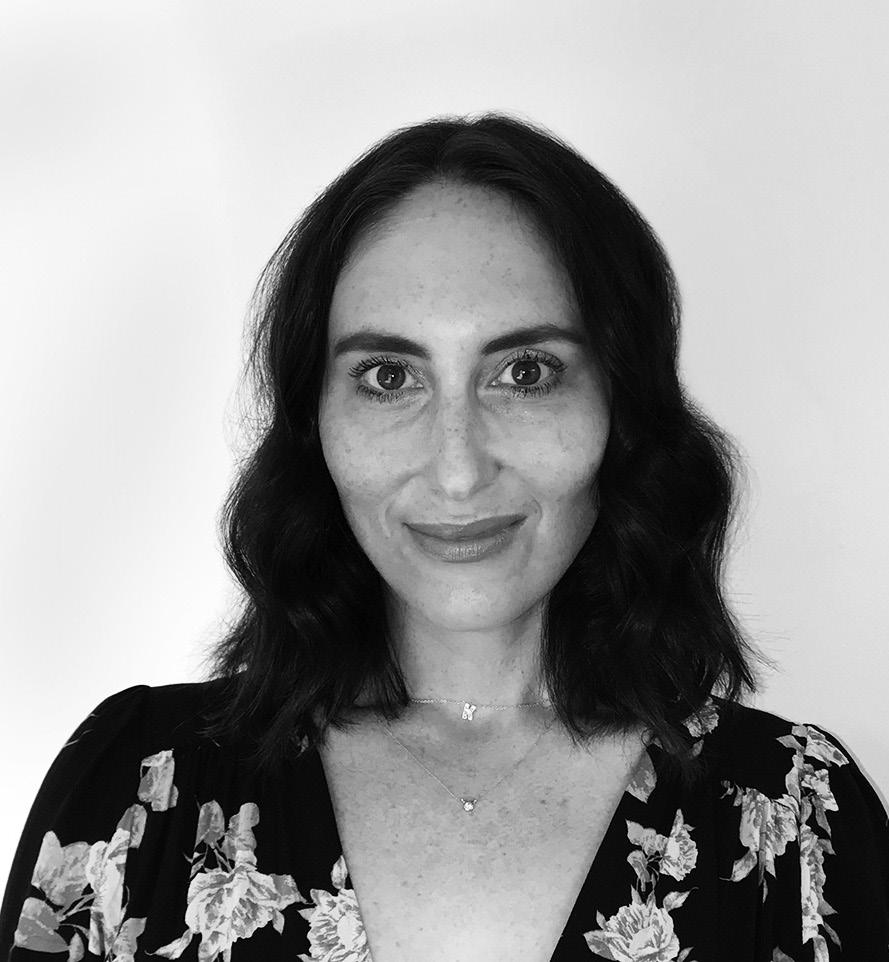
What advice would you give to somebody transitioning from their education into the industry?
The music industry is an industry that everybody wants to be in. Right? And not many make it. So
00.00:00.00 00.00:01.00 00.00:02.00
network as much as possible. Be kind, because you would be surprised how many agents and artists that I’ve booked, even bands I was booking at The Khyber, the punk club, it’s bands I’m booking today. With the same agents I’m working with today. Whether it’s The Decemberists, The War on Drugs, Iron & Wine, The National – they’re bands that are still around today. Now I’m booking them at Forest Hills! Some moved up, some didn’t.
There were times in my career when I was young, as a female, I thought the only way to gain respect in my career was to be tough. It’s a little different now, there’s a lot more women. But back then, there wasn’t. I felt like I almost had to have this tough exterior to get what I want, and I realize now that was so wrong. I can just be who I am. I can be kind and I can still get what I need done. Me being somewhat tough, there are people that are still in the business that might think of me that way and may not want to work with me. So that’s another thing; who’s the assistant, who’s the ticket gatherer. Anybody. Those are the people that become your peers. So treat everybody with such kindness, because you just never know.
Can you speak about your experience as a women transitioning into the music industry and working your way up through a company as big as Live Nation. How did your identity as a woman affect that?
Well, it’s hard. I started my career by giving my opinion even when it wasn’t asked. Even when I was in a room full of men that didn’t care. I mean, it was hard. And now it has transformed into, I feel such a duty to the younger generation. To show them you can be a mom. You can be a great mom and still do this job. You don’t have to pick your career over the other. While that might seem so foreign to you guys, because in any other business– lawyer, doctor– women have children all the time. It’s not like that in the music
Interviewed by Samantha Haynie (Class of ‘24) and Scarlet Brigham (Class of ‘25)
industry. It’s changing, but I’m the first female in the New York market that’s in my position, and to have children. So I feel such a responsibility to the younger generation. You lead by example – you can do that.
What is it like balancing working in the music industry and having kids?
Hard. Well, the first thing is I have an amazing partner. Number one is you have to pick the right partner, because if you want to make it in this industry, there are lots of night hours. If you pick a partner that has an antiquated view of what a mommy should be – dinner on the table, cleaning the house, all of that – that was never gonna work for me. I never was that person, I’m not gonna be that person. But I knew it was very important to me, I wanted to be a mom.
I put my career first for a very long time. I established myself before I had children, and that was on purpose. I didn’t even get married until I was 37. From age 23 up until 35, I really established myself. I was out four or five nights a week as a promoter, moving up. If I’m gonna be a mom, I’m gonna be a great mom. I got married at 37, I had my daughter at 38, and she’s 5, and had my son at 41, and he’s 2. Now, I always talk about my boundaries. This career is 24/7, so you can always be on a hamster wheel. Just keep on going, keep on going, giving your all. And should you be doing that in your 20s to set yourself up? Yes.
Now, I’m in a position where I can take a step back a little bit. I don’t have to be at every single show. My team can be there. What I try to do is pick the two nights of shows a week that are the most important for that team to see me, whether it’s the touring team or the artist team. The rest, we all delegate. There’s plenty of people on my team that not only want to be at that show, but it’s a great opportunity to network.
(11)
00.00:03.00 00.00:04.00
Jayla Johnson
B.S. Entertainment & Arts
Management | Class of 2022
MANAGER - CREATIVE STRATEGIST
@ WASSERMAN
☞ New York City, NY
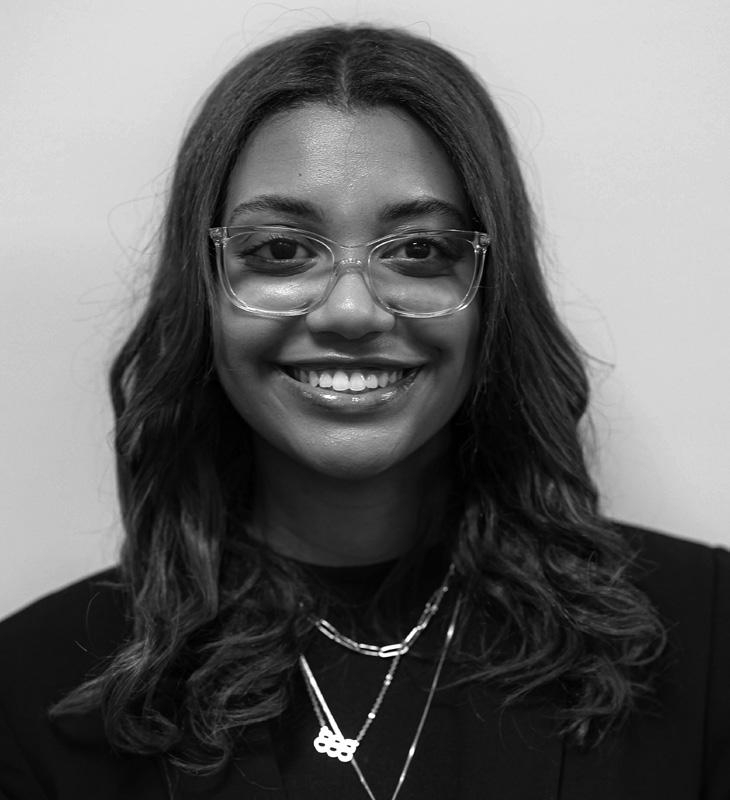
How has your career path differed from your initial expectations when entering the music industry, and how did you navigate those shifts?
My initial expectations when entering the industry did not change much. I always knew I wanted to work in the entertainment space, but it wasn't until I came to Drexel that I realized music is where I want to be! I knew how competitive it was and that it would be long hours and lots of outreach. Nothing happens overnight and because of that mindset I kept reminding myself why I want to be in music and the difference I want to make. I always had a plan, in terms of where I wanted to work and what networking events I had to go to and clubs I needed to be in. It has paid off and I would not change anything and I do not regret anything either. The pandemic shifted the landscape, concerning co-op and internship opportunities. It is hard at times trying to get your name in these rooms and it can be challenging, but with the right support system and great mentors it will all work out! I've remained positive in times of uncertainty and am very blessed to have navigated all of these shifts while being a student first!
What is the most fulfilling part of your average day?
The most fulfilling part of my day revolves around presenting my ideas or showcasing my work to the artists, their teams, and clients. Seeing their genuine reaction to the pitch brings a smile to my face. I have to ask myself the question, “am I happy with the work I am doing? Am I satisfied?” While I value others' opinions and input, my ultimate measure of success lies in my personal fulfillment! Knowing what I work on starts with just a brainstorm session to then reaching millions of people brings a smile to my face – it's definitely rewarding.
00.00:00.00 00.00:01.00 00.00:02.00
What was it like to be at a company like Roc Nation that is an industry leader in diversity and inclusion?
Women make up the smallest percentage when it comes to the entertainment industry. There are so few of us, especially Black women and people of color. But when we are in these rooms, we show up, we show out. My entire team, pretty much all the teams I was on, there are more women than men. We don't make up the majority, but our presence is felt. It's definitely rewarding to see Roc Nation’s CEO – she's a woman. I've always wanted to be in a space where I'm working for a woman. I've had great experiences – and I continue to have great experiences – because they see things differently and they want to continue to make space for young Black woman like myself. There are enough seats at the table for everyone to shine!
How do you deal with imposter syndrome?
I remember one of my Drexel discussion boards was about imposter syndrome and my answer was, for me, dealing with imposter syndrome has been an interesting journey for me. While I acknowledge its existence, I don't let it dictate my mindset. My thing is… there is only one of me. There's only one of you. Everyone's path and journey are so different. I am not looking at somebody else's path because I don't know what they went through to get there. I don't know what they had to deal with. I have allowed myself to not beat myself up – I don't need to say anything nasty or negative and speak so low of myself because I know what I can bring to the table. I know what I'm capable of doing. It's not even about being cocky; it's more about the confidence and having humility. Through experiences like engaging with C-suite executives and presenting to artists, I've built a reputation for myself, reinforcing my self-assurance. Tuning out external noise is crucial in an industry where opinions can be abundant and diverse. I've learned to prioritize my vision and goals, asking myself about the legacy I want to leave behind. I feel like you're going to lose hope and lose track of what exactly your plan is and what you're meant to do here. We all have choices in life, and so I choose to stay positive and joyful. I choose all of this because I know at the end it's going to be rewarding. While imposter syndrome may lurk in the shadows, I don't allow it to overshadow my confidence and determination. At the end of the day, staying true to myself and focusing on the rewarding journey ahead is what matters most to me. So imposter syndrome to me…it doesn't touch me.
Interviewed by Dan Flavin (Class of ’25) and Alexander Theodorakos (Class of ’25)
(13)
00.00:03.00 00.00:04.00
Kira Karlstorm
B.S. Graphic Design | Class of 2007 HEAD OF MUSIC LABEL RELATIONS, CONTENT DEVELOPMENT, & PROGRAMMING @ TWITCH
☞ Los Angeles, CA
You have an incredibly interesting job history – what is your secret to adapting to each of the positions that you've held over the years?
I would probably say the one thing that's been easiest to adapt to is that each position I've held (outside of basketball) has had in some way some creative through line to it, whether it be in film or TV or sports or music. Solving challenges through creativity has been a constant. And I guess I believe that the secret has been to stay curious, to never stop learning, and even through times of change to maintain a positive attitude.

How did Drexel helped prepare you for what you're doing now?
I would say Drexel was probably the most pivotal period in my early adult life. There was a lot of changes and growth moving in from a teenager to a young adult. I moved from a very small town in Michigan to a big new city where I didn't really know anyone to be a student athlete. My dream was also to be a designer.
Having the ability to learn from both the arts and the athletic communities gave me a broad perspective of a laundry list of things – how to approach challenges with solutions, thinking both creatively and strategically, balancing perfectionism versus excellence, valuing my relationships, learning how to build and maintain a relationship, and how to network. Time management was a big thing for me as a student athlete, being an art major and a basketball player. I would say the one thing that I took away from everyone that I had surrounding me–from peers to mentors to teachers to coaches–was to, above all, never give up on the things I felt most passionate about.
Do you think that being a student athlete significantly impacted your ability to work in the entertainment industry and to work in a team?
100%. I'm not going to say that if you didn't play athletics, that you can't work harder; but I will say personally, I approach situations very differently. When I set goals or set my mind to do something…the way I work towards that is very similar to how I approached winning from a team environment.
I think every job–from an independent contractor to having a team that I'm managing–it’s how do you rally around a team like I did in college. It's how do you talk to different people, how do people receive messages, how do you motivate
00.00:00.00 00.00:01.00 00.00:02.00
them, how do you work together to achieve the best results. I think there were so many things that came out of athletics that I truly believe put me in a position that I am – the teamwork and the time management, the never giving up piece of it, hard work. I think too, like just as an athlete, you are susceptible to adapting to change. You're always trying to change and adapt and grow and get better at certain things.
When you graduated, did you ever think you would end up working in the music industry? How has been your experience coming from a different background to the music industry?
To put it blatantly, no, I absolutely did not think I would ever work in the music industry. I always thought that I would end up being a designer in the more traditional sense. Working at ESPN really opened my eyes to different types of career opportunities that existed in the entertainment space that I just wasn't aware of. I grew up in a small town in Michigan and a lot of the jobs that people had around me were very blue collar. It was nurses and teachers and doctors and lawyers. Entertainment wasn't really a career path that I grew up knowing.
When I got to ESPN I was on the creative team. I was the liaison between on-air sponsorship and creative services, but then I also worked on graphics packages for different shows, but the last thing was coming up for creative for music video opens like show opens. So I worked for three years on Big & Rich for College GameDay, B.o.B. for College football, Mariah Carey for NBA Christmas. Music videos, music, and telling a creative story – even it if it was through a 30 second-minute narrative with ESPN – that's where I really fell in love with music.
Then music became a part of every job that I'd had throughout my career. For example, I got to the point where every job I had I worked with Katy
Interviewed by Aron Feller (Class of ‘24) and Eric Kuhl (Class of ‘25)
Perry. When I was at Comcast, we sponsored [Katy’s] Witness: The Tour, and then I ended up at Capitol Records working as a Creative Director on some of Katy's projects. So I think it was just having little instances throughout my career that opened up different sides of the music industry and jobs and things that you could do that propelled me to getting to where I am now.
How has your experience as a woman in the music industry compared to your experience in other industries that you have worked in?
I'm not sure that it's that different, to be honest. I think the music industry itself is different, but I don’t show up differently. I think the biggest difference is most of my career–marketing, growing, amplifying, a TV show or a film or a live event or a commercial–is very different than working in the music industry because my product essentially is a person. [Artists] have an opinion, they talk back to you. Xfinity Internet is not telling me whether I'm doing is right or wrong. Neither are the graphics on SportsCenter. But someone like Katy Perry is telling me what they think or feel about the ideas that we're coming up with.
I would say that the biggest difference, and the most rewarding experience for me, is that at the end of the day the musicians we work with are our ‘product,’ but the roles that I've held were essentially helping someone fulfill their dreams, which is something that is priceless. If I put a Winter Olympics commercial out for Xfinity and it tanks or it does well, you know, it kind of bears no weight after that. But whether a song takes off or an artist gets to continue making music in their career, there aren’t words for that type of feeling or reward that you get watching or helping or be part of that. So I think it's less about being a woman in the industry; it's more about the industry itself and the work that you get to do and the stories you get to tell and the people you get to help.
(15)
00.00:03.00 00.00:04.00
DianaLambert
B.A. Communications | Class of 2021
ASSISTANT, COMMUNICATIONS
(GLOBAL CORPORATE SOCIAL RESPONSIBILITY, EVENTS AND SPECIAL PROJECTS)
@ UNIVERSAL MUSIC GROUP
☞ New York City, NY
What are some of the key milestones you've reached on your professional journey in the music industry?
There are a few key milestones that have shaped where I am. The first one being when I first started at UMG. It was my first job out of college. I felt like I had no idea what I was doing or what I was getting into. I knew it was my dream company to work at, but it was so terrifying to actually be there. That was a really big milestone for me, just to go through all of the thoughts and feelings of imposter syndrome, not feeling like I deserved the position or that I was going to do a good job at the position. Also, it didn't help that I graduated during COVID, and at that point, UMG was still fully virtual, so I didn't really know the people I was working with. I didn't get to experience working in a record label office for a while. That was a very big adjustment to have - coming out of college, going into the real world, and having all of those feelings of second guessing yourself and your skills.
The next big milestone was the first in-person event that I ever did. It was a year and a half after I started at UMG. My team puts on a Grammy showcase every year in LA with up-and-coming artists, and then we do our Grammy after-party. Coming from not really knowing anyone and being fresh out of college to working in LA for the Grammys was insane. It gave me an entire new perspective on the job I was working. I got to be hands-on in the music industry and I think you don't really know the pressures and the intensity of the music industry without being in it like that. It was a really big building block for me because I was under so much pressure, and I had to be on my game the whole time. Before that, I had never been to LA. In my mind, I was this scared little
kid that just graduated college. But after those events, I started saying to myself, “I can actually do this. This is what it's all about, this is why I'm working here.” Everything shifted for me in that moment.
Can you describe a memorable project/event you've been involved in at UMG, and how'd you played a crucial role in its success?
I think the Grammys in 2022 was that for me. Working on that event is such a huge lift. With it being my first experience in person with everyone for an extended period of time, it was a really big learning opportunity. I'm the assistant on the team and I have to be at everyone's beck and call at all times. You have to be on, you have to know what you're doing, and you have to be ready for anything. When you're virtual, you're always online, but it's not like you're running around, getting lunch for people, getting coffee, or doing any random tasks that they need. That was a memorable moment for me in regard to my learning and in regard to my career. That was the moment that completely changed everything for me.
Any mentors who significantly impacted your career? How do you support women aspiring to enter the music industry?
My female mentors throughout the internships that I had throughout college paved the way for me to want to do this. While I didn't get to meet a lot of them in person, we had great relationships online. I could tell that they wanted to help me, and through that, I now want to help other people achieve their dreams. I want to assist other interns and let other young girls know that they can do this and that it's possible. For example, I have an intern coming in June. I'm excited to help and guide her through her career, take her under my wing, and be able to help a younger version of me. When I was in that position, I
00.00:00.00 00.00:01.00 00.00:02.00
really appreciated the people who were my intern managers who took the time to guide me, and helped instill the necessary confidence that I could do it. My boss right now is a huge mentor. I look up to her so much. To be surrounded by women in my job, and to also have a woman as my boss who is so kind but will also get things done is so inspiring. To see a woman doing that and forging her own path, I'm sure there are so many women surrounding me and her within the industry who admire her as much as I do.
How did your experience at Drexel impact your journey in the music industry? Any advice for current students?
Internships and work experience are huge. They mean everything. The degree gets you the qualifications to get an interview, but the internships and the work experience that you have prove to the recruiter that you can do this job. That is my biggest advice to any student who is looking to pursue a career in the music industry. Experience is everything. With the Grammys, I didn't know what I was getting myself into until I got that hands-on experience there. The same thing can be said for internships. I do not believe that I would be in my current position without all of the work experience that I had. Drexel pushed me to get out there and apply for these internships that I didn't necessarily think I could get at the time. I ended up getting them, and they gave me so much experience and so many connections that allowed me to build my career and network. They also helped me figure out what I did and didn't want to do within my career. My final internship in college was with NBC Universal, with Universal Pictures. That job consisted of experiential marketing, mixed with a little bit of publicity and digital marketing. I loved all aspects of that internship, and it was then that I realized that I wanted to shoot for the stars and go for a big company. I want to be and be with the best of the best. Through that internship, I also scheduled informationals with coworkers. The connections that I made ended up getting
Interview by Laila Keaton (Class of '25) and Ella Beaky (Class of '25)
me an interview at UMG, and then this job. It's all about who you meet, the experiences that you have, and having the confidence and drive to put yourself out there even in a situation that may be uncomfortable or unfamiliar to you. I don’t think I would be here without the experiences I got through Drexel.
What is your advice for persevering through rejection and failure when trying to enter an industry as challenging as the music industry?
Use the rejection and people doubting you as fire. Use it to motivate you. There are always going to be people in your life and career (especially if you are a woman) who doubt you, doubt your skills, and doubt what you can do. Instead of taking these doubts to heart and having them bring you down, use them as fire to help you propel forward and prove them wrong. Don’t let people in your ear put you down and tell you that you can't make it in this industry. You just have to believe in yourself and do the work to get there.
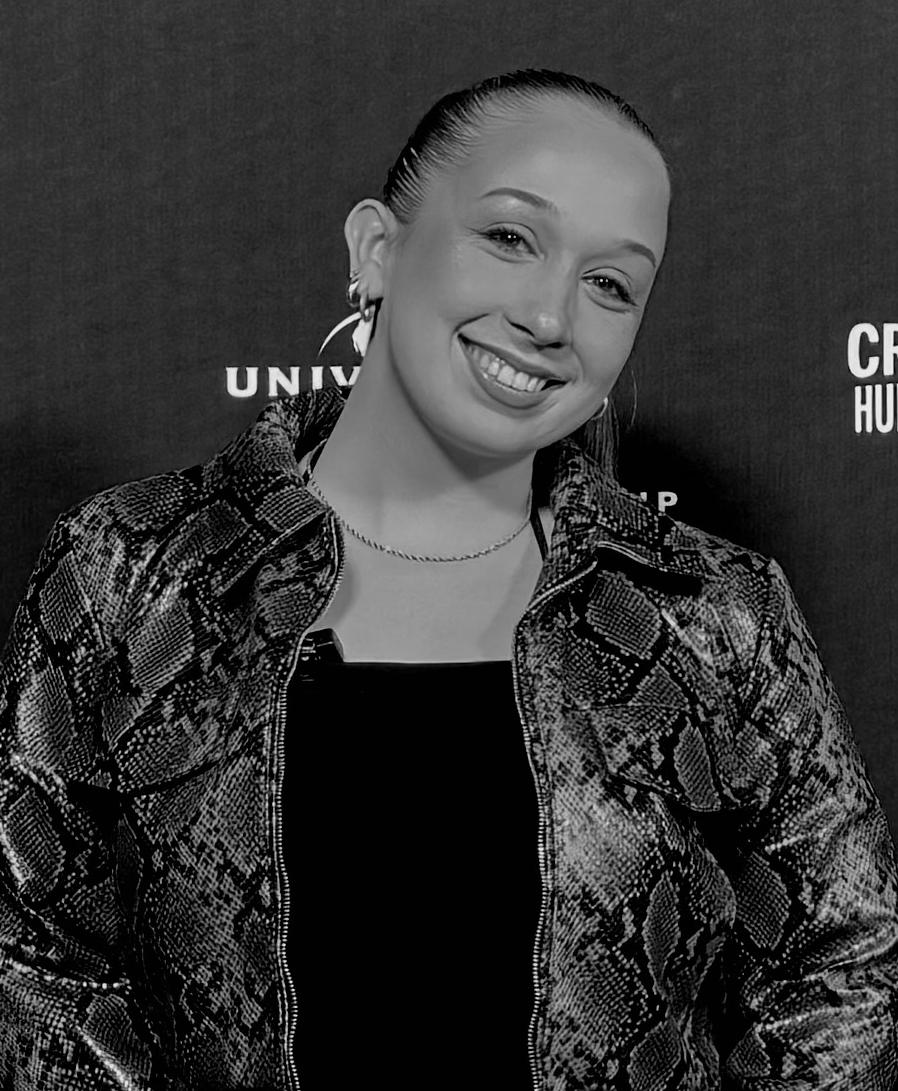
(17) 00.00:03.00 00.00:04.00
Caylie Landerville
B.S. Music Industry | Class of 2018 MARKETING
DIRECTOR
@ RED
LIGHT MANAGEMENT
☞ Los Angeles, CA
Was digital marketing always your planned career path?
When I started at Drexel, I didn't really know what exactly I wanted to do yet. My first few internships were in marketing, and then junior year I got a job through Sony Music's college marketing program so I was the Philadelphia College Marketing Rep. That was kind of my introduction into my first ‘big girl’ job within marketing servicing all of the Sony Music US Labels.
It was a very expansive range of responsibilities – there was the digital aspect of coming up with digital marketing campaigns or ideas to promote songs online, but there was also the in-person and physical street team stuff: helping at events, setting up promotional events, all of that. I loved all of it. That was what set me in the right direction in the marketing world.
I also really loved networking and meeting people; building and maintaining relationships was a huge skill set I learned from that job. I realized it was something that I was good at and I wanted to do that in my future positions. Also collaborating with people to come up with cool and creative ideas.
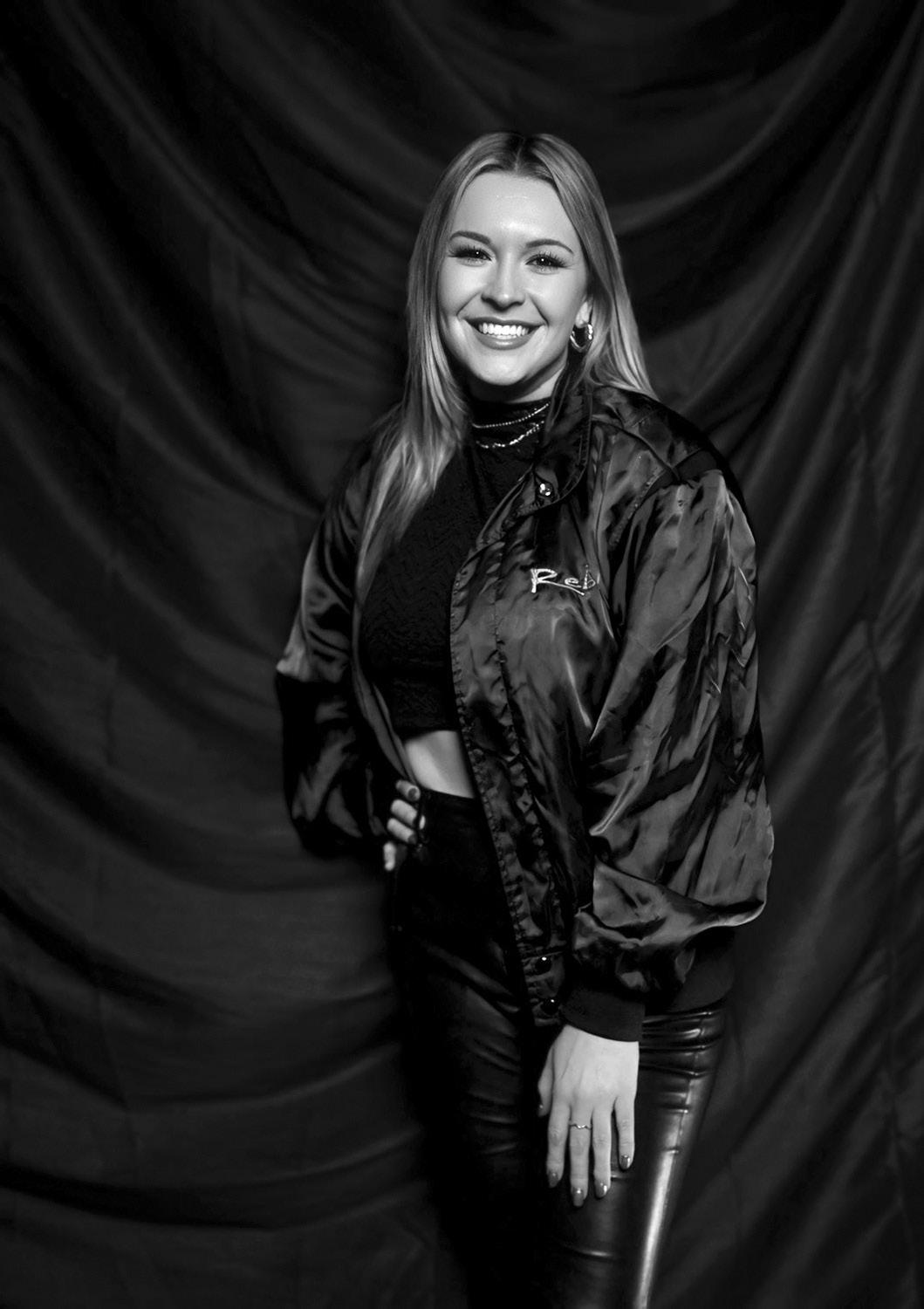
What was the career journey that led you to pursuing digital marketing?
When I graduated there was a role on the Central Sony Music US team with commercial marketing, US sales, and streaming in the New York office. In that role, I wore a lot of hats. I was assisting the SVP of US Sales, so she oversaw all the commercial account managers, which was for US physical sales and for streaming. Being a central resource to her and to all the account
managers was the main part of my role, but I also got to work on budgets that Sony had to prioritize certain campaigns – we had budgets for digital ad campaigns and marketing campaigns there. That was my first introduction into being hands on in digital marketing and working across a lot of different types of campaigns and ads.
At my 2-year mark, I'd been kind of looking at roles back in LA. I ended up getting a role at Mad Decent and Higher Ground, Diplo's company, as a Digital Marketing Strategist. I had taken what I had learned at Sony and was ready to take it up another level. In this role I was managing all the advertising operations and campaigns. This time I was also deciding on budgets for our releases.
I was in that role when short form content was starting to take over. It was a very interesting time because I had to really stay on top of everything that was going on in the digital landscape. That was another big part of the role – maintaining relationships with all the partners like Spotify, Apple, Amazon, Youtube, TikTok, and Instagram. Unlike Sony music who has an employee per account, I was working at a much smaller
00.00:00.00 00.00:01.00 00.00:02.00
company and an independent label, so I was across all those accounts and partners, which was great. It was definitely challenging in a good way.
Then I was offered an opportunity to work in artist management, which I was never really interested in until I started working at Mad Decent. Since Mad Decent was an artist-led company, it felt like I was learning a lot of skills that could be applied to management. I felt like I needed to take it just to see how it went, and if it was something I liked and wanted to switch gears to. It turns out I didn't love it. I was assigned 5 different clients to help with day-to-day operations, and they were all very busy touring DJs. Between the 5 of them I ended up being pretty overwhelmed.
I wanted to shift my focus back into digital marketing and was offered the opportunity with The Shalizi group to work across their dance artist roster. Marshmello, Alesso, Afrojack, Jauz, and Surf Mesa were the main artists I was focused on. I was overseeing their everyday content strategy, not just around releases, but also a lot of creative ideation and content ideation around brand partnerships they had. It was a really great experience – again taking it up another notch on a digital perspective.
How would you describe your experience as a woman in the music industry?
I think it's something that has been tough for me in my past roles. Mad Decent, Jet Management, and The Shalizi Group – those are all companies very relevant within the dance music and EDM space, which is very male dominated in terms of both the artists themselves and the people working at the companies. I was one of the few women in my role at Jet Management. All of my clients were male, and all of my counterparts were as well. I think that made it tougher at times, especially being in artist management where it can be extremely cutthroat and intense. You're
Interviewed by Karmina Wall (Class of ‘25) & Moe Melish (Class of ‘25)
around a lot of egos, so there were times where I felt like I couldn't really get a word in or couldn't speak my mind as much as I would have liked to.
So yeah, it has been a challenge, especially working within the EDM and dance music scene. There is progress that has been made, and progress to be made. All you can do is keep trucking along and learn as you go. That was another reason that led to me quitting artist management. I just felt that it wasn't the right thing for me. Knowing what you're comfortable with and what works best for you is really important.
What advice would you give young women trying to enter the music industry?
Something that helped when I was looking for a new role, and the way that I landed my role at Mad Decent, was by reaching out to another woman at the company who had similar experiences as me. She had a similar role at Warner as I did at Sony. I reached out to her just to ask her about her experience. I told her I was interested in working at a company like Mad Decent, that I wanted to hear about her experience, and if she had a few minutes for me to ask her a few questions.
Something that I've always shared as advice to college students or anyone in the job market is to reach out to people for 1-on-1 informational interviews, or even ask for 15 minutes of their time to ask them a few questions about their experience. It really does set you apart when you have these human-to-human interactions or relationships with people that are willing to help you in this industry. That is how I got to where I am today, because if you're just another application in the running you're not always going to get acknowledged…even if you have the experience or the qualifications. A lot of the time, it does depend on your network.
(19) 00.00:03.00 00.00:04.00
Mackenzie Mason
B.S. Music Industry | Class of 2017
PUBLICIST @ THE GREENROOM PR
Nashville, TN
What sparked your initial interest in PR and publishing?
I actually had no intention of going into PR. I went when I went to Drexel, I fully wanted to work in artist management first. I had my co-op in the summer of 2015 at Constant Artists, which is a management firm, and realized I didn't really like artist management; but I worked on their marketing team while I was there and realized, “oh, I like marketing and I'm pretty creative. I'm a lot better at this.” So I was like – all right, I'll go in the direction of marketing.
I was in the five year BS/MBA program, so when I started my grad school year, I took a marketing concentration and then graduated, went to LA, got my first job that was in PR, and that was in 2018. And I have been in the PR world ever since. So I actually I had no intention of winding up in PR. I took classes on it, in the program and when I was in grad school, but I was just like, ah, it's all right. I'm a good writer. And this is fun, all the relationships. But it never was what I thought I was going to do. And now, gosh, what is it, six years and now that I've been working in it, it's fun. I do think I would probably drift back to marketing at some point, just because I like the more creative aspect of being in marketing. But yeah, I unintentionally found my way into publicity.
What was the career journey that led you to pursuing digital marketing?
I'd say one of my biggest accomplishments actually came forward during my second co-op in LA when I was working for Explosions In The Sky. It's my favorite band of all time. They were putting out an album and they had really not had new merch in almost ten years. They're not
very active on social media, but the one thing that they do know is that they are so, so, so, so invested in their fans. So when we were trying to put together a marketing plan for the new album, I just put together an idea that was like, “okay, let's drop the name of the album. We'll release the name of the album on social media, and then we'll have people do a merch design contest.” The name of the album was The Wilderness, so whatever that the wilderness meant to you or what you saw or you felt, you drew it and you sent it in. Then we would pick the top designs for merch, and oh my God, the responses were insane. We got so much cool stuff and some crazy stuff. But it just increased their social media following by so much, it increased their merch sales by so much. I got to help pick out the designs that we ended up going with, and those went on to be best sellers. So I was this 20 year old kid who just got to peak in life already by doing something incredible for my favorite band. That made me want to join the music industry.
Has being a woman impacted your music industry career positively, negatively, or both?
It has definitely been both. One thing I found is that being in publicity and PR, it’s a very womandriven field in general. The PR firm I worked at in LA is a woman-owned company, everybody there was a woman. The PR firm that I'm now here at in Nashville is also woman-owned, entirely a woman team. I've been very lucky that I've been able to be part of two great companies with very driven and supportive women, because I have been at another job that was all women, but it was like you're at each other's throats instead of being uplifting and supporting each other. It was a hostile environment and that was something I was not expecting when I joined that company.
I am so glad that I am now at a company where I'm back in that super supportive environment. But I think if I hadn't stayed the PR route, I would
00.00:00.00 00.00:01.00 00.00:02.00
☞
have had more trouble getting into anything else, simply because I have just noticed that PR is a women-led field. Even if I transition back into marketing – marketing is such a bigger scope; there are so many more men in it that I am thinking whether I will be putting myself back into competition with men if I transition out of this job.
Can you share what you have witnessed in terms inclusion efforts at companies where you've worked?
My company that I'm at right now actually dropped a client after his wife made some transphobic comments on social media. It was a long-time client and they received a lot of backlash. It cost my bosses a lot of money, but they were like, “you know what? No. We're not going be behind that. We're not going to be a part of that.” That's part of the reason why I really wanted to work at this company. I think it's people like them who are going to make the changes, and hopefully working under them and seeing that, I can go forward and do that too. It was so enlightening to me to see them really stick their neck out for what they believed in, knowing what it was going to do publicly to the company. I hope there are more people out there like my bosses who are just so inclusive and so strong in what they believe in and who they believe in and how they want the direction of the industry to go.
My boss in LA too, she was super awesome. She loved to find women-fronted bands or LGBTQ-focused projects. All she wanted to do was to uplift the bands that were not getting a chance because they don't look the same way, or they don't have a male, hot lead singer. I really loved being in that environment of her saying, “we're going make sure that the women that are playing the music are not just behind the scenes, they are really going to get the light of day.”
I feel very lucky that I have had two really great bosses that were just like, “yeah, I'm going do what I want and what I believe in, and all else can go to hell.”
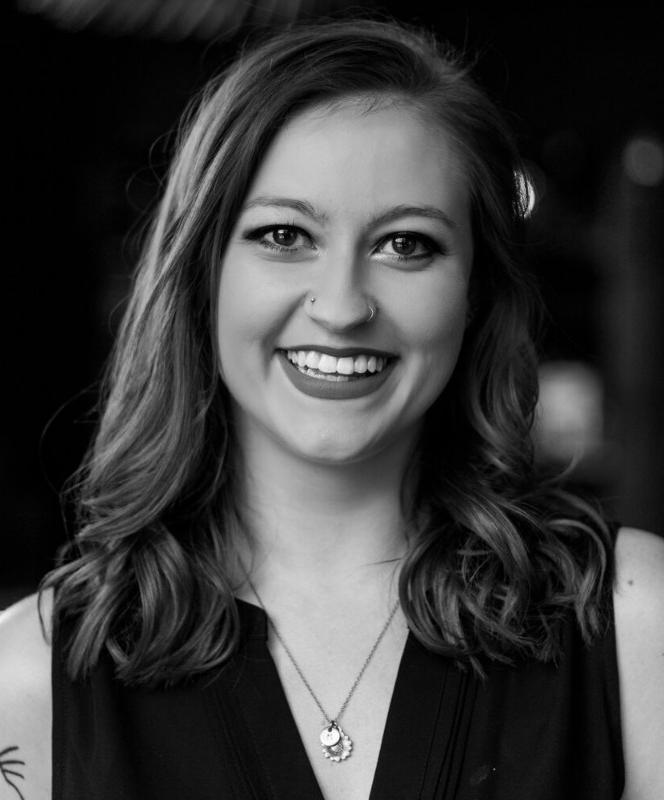
(21) 00.00:03.00 00.00:04.00
Interview conducted by Simone DeVoe-Caccavo (Class of ‘25) and Chloe Silver (Class of ‘25)
Melissa Newhart
B.S. Entertainment & Arts Management | Class of 2010
EXECUTIVE, MUSIC BRAND PARTNERSHIPS @ UNITED TALENT AGENCY (UTA)
ADJUNCT PROFESSOR @ NYU’S STEINHARDT SCHOOL
BOARD MEMBER @ WHYHUNGER
☞ New York City, NY
While at UTA have you seen any change in the environment regarding diversity, specifically the number of women at the company?
What drew me to UTA was the opportunity to help build our Music Brand Partnerships Team, which was a female led department. The team at the time consisted of two women in LA, and myself in NY. While I was tasked with growing the business out of our NY office, scaling the department’s representation across different genres and clients, I was most excited for the chance to help hire, mentor, empower and champion other women within our department. When we were building the department, we were focused on not just hiring and providing better access and opportunity for women in the industry, but also fostering a supportive culture centered around career development and growth. Seeing my former assistants become coordinators, and then go on to become agents over the last few years has been one of the most rewarding parts of being at UTA. Seven years later, we now have a very diverse department of 21 individuals (16 of them women) across our NY, LA, London, and Nashville offices.
I believe within any organization you need to be the change you wish to see, and we have some incredible women working at every level within UTA who are putting programming in place to ensure more female voices are seen, and more importantly heard! For example, La Femme Majeure, an event series dedicated to
bringing together music’s next generation of female leaders, nurturing professional growth, and advancing gender equality in the industry – was started by female music agents at UTA. UTA also hosts mentorship programs that are inclusive for all employees at varying levels and provide an opportunity to connect with other individuals across the company to find your professional support system. In addition to supporting the diversity within UTA, I believe it’s equally important to support the growth of young women and more diverse women across the music industry at large. I teach a course at NYU and unfortunately following graduation a lot of my female students will share feedback that they feel they don’t “fit in” at certain companies across the music industry. My advice to them is that you don’t have to fit in; take up space, be who you authentically are, because that will create space for more individuals who may look like you, have your shared perspective, or have similar cultural upbringings in which they will feel like they fit in when it’s their time to enter the workforce. My hope is that the next generation will have many more examples of women in these leadership roles that they can look up to.
What has your experience been as a woman in the music industry? Good or bad standout moments?
Throughout my career I’ve been told all the stereotypes we as women face. I once had a man tell me I looked “too young to hold my position” and another state “I thought you were just a pretty face” when he realized the level of work I was responsible for. I also was told by a woman in our business that I’m “too nice.” What this has shown me is that no one is immune to bias. However, the challenge is to not let these types of comments get to you. I didn’t change my appearance or harden my approach –in fact, I lean into my youthful nature and friendly demeanor because that is who I am.
I’ve had many difficult moments throughout my career when I’ve felt judged, held back or simply unequal. Early in my career, I thought my work would speak for itself. However, I’ve realized that it has always been my responsibility to champion
00.00:00.00 00.00:01.00 00.00:02.00
my work and the value I bring. You cannot rely on other people to advocate for you, if you’re not willing to advocate for yourself. These experiences have taught me that the difficult moments in our careers create opportunities for us to learn how to navigate those challenges in the future and pass those lessons onto future generations so hopefully they won’t have as many challenges to navigate. Despite those challenges we face as women, I believe we have an innate ability to connect with people and humanize whatever industry we’re working in. I attest a lot of my career success to my personal relationships, and the trust and rapport I have with my colleagues in the business. For example, I’ve been fortunate to work with and represent incredible female artists that are not only talented creatives but are spectacular advocates and activists for women in their lives and in the music industry. These artists open doors for not just other female artists but for female executives and women working in the business. Whether it’s Ms. Lauryn Hill continuing to inspire future generations of women in hip hop, or artists like Latto, Princess Nokia, and Tierra Whack, carving new genre-bending lanes for themselves, to Anitta, Karol G, and Young Miko who are breaking through cultural and gender
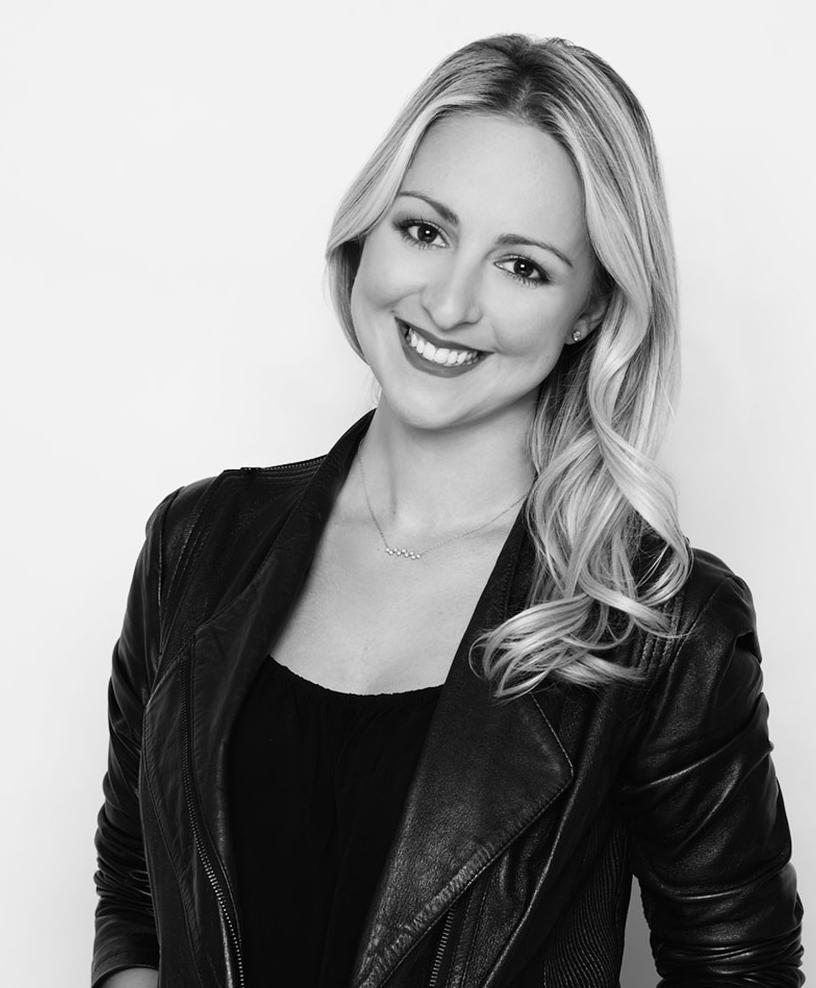 Interviewed by Kellie Minus (Class of ‘25) and Imani Andoh (Class
Interviewed by Kellie Minus (Class of ‘25) and Imani Andoh (Class
of ‘25)
barriers in very male-dominated genres –I am surrounded by, inspired by, and uplifted by these incredible women in music. Whether it's artists, managers, or colleagues at UTA, building relationships and finding other likeminded individuals who support me and other women in the industry has been a positive and incredible part of my career.
Highlight of your career so far?
It’s always hard to pick one highlight. I would say I’m most proud of the relationships I’ve built, and the impact the artists I work with have on their communities and audiences, and the fact that I get to be a part of that. I feel very grateful to work in a space that I am so passionate about and to have meaningful relationships with colleagues and artists who feel the same and work just as hard. A lot of the work that I have done in my career is business-focused in terms of scaling and building artists' brands, fan bases, and enlisting them in strategic partnerships, but I have always taken an activist approach to my work by working with artists that have meaningful and important stories to tell in terms of their cultural upbringing and breaking gender and diversity barriers. A lot of the brand partnerships I’ve brought to life over my career are reflective of that – whether that’s ensuring the production teams on set are diverse and female led, to developing charitable tie ins to the brand partnerships, I always try to lead with purpose and am fortunate to work with artists that do the same. So it’s not particularly one-moment or one deal that has been the highlight of my career, more so I'm most proud of the fact that I’ve been able to maintain a level of advocacy and activism in the work that I do to move equality forward, help other women break barriers, have people think differently about how music can move you, and the impact that music can have in communities through partnerships. Another career highlight would be adding professor to my resume in the last few years, teaching strategic music and branding to students at NYU. That chapter of my career has been incredibly rewarding and something I look forward to doing more of in the future.
(23) 00.00:03.00 00.00:04.00
Deb Riccardi
B.S. Music Industry | Class of 2012
SENIOR DIRECTOR, ARTIST & LABEL SERVICES
@ FAME HOUSE
☞ Philadelphia, PA
What challenges have you faced as a woman in the music industry and how have you overcome them?
I've been in the music industry since I was 16. Being a young female in the industry, I faced a lot of the typical stereotypes being in a maledominated industry from a young age. I started in live production. That was very much maledominated. It was tough to be taken seriously at an early age. Not only because of my gender, but my age and lack of experience.
I will also say that I feel incredibly fortunate to have landed where I did very early in my career. Shortly after I graduated in 2012, I landed at Fame House when we were a start-up before UMG acquired us. I was like the fifth person
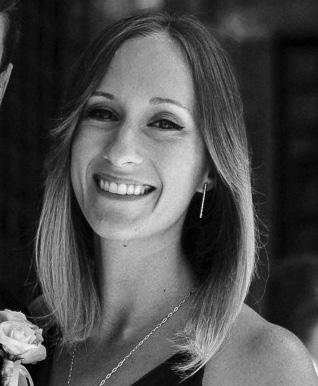
hired there. It has been really cool to be with the company and see it grow since then. Ever since then, the early days of Fame House, my current boss and mentor and good friend of mine, is female. I've always had an incredibly strong, kick-ass female mentor in my corner from the very early days of my career. From the early days, we have always taken to heart elevating women in our company and respecting women and diversity in general.
Then we were acquired by UMG. It's a company that has been fantastic about empowering women. As an example, I got to participate in a program called UMshe where they picked 30 upcoming leaders in the company to have us mentored by women and men alike and develop us as women within the organization. I certainly faced challenges early on. However, I will say I've also been incredibly fortunate to have landed in companies and environments from an early stage in my career that helped support me as a woman in the industry.
What key moment shaped your career from Drexel to Fame House?
Through Drexel, I was exposed to a lot of different internships. Some of those milestones that shaped me early on were taking advantage of the internships. I took every opportunity I could to work in live events, marketing, legal and business affairs, events production, radio. Everything I could touch, I did just to get a well-rounded experience, especially in college when you can afford to just take little internship stints at a time.
Learning what I liked and what I didn't like was incredibly valuable to help give me some direction where I wanted to go. My first full-time career in music right out of college, working for Fame House as a startup, absolutely shaped so much of my career and what it is today. It was very much a fake-it-till-you-make-it kind of experience in the beginning.
We were a marketing agency first and foremost back then, and then just really shaping our
00.00:00.00 00.00:01.00 00.00:02.00
business and growing our company with the demand of the market. Back then, it was innovative and disruptive to have somebody running your social media for you. We were one of the early agencies really doing that for clients.
Then we expanded to do things in brand partnerships. I even got my hands dirty with creative services after taking one 10-week Photoshop class at Drexel, and hacking together really bad websites, and just learning everything I could in a startup where we were doing whatever we could to give great client service, but also meet the demands of the market and understand where opportunity existed.
I think the biggest takeaway from all of this that I continue to keep top of mind in my career is that the only constant is change. You have to be so able and willing to adapt and roll with it. It's been a challenge, but an exciting challenge to roll with the punches of change throughout my career.
Any advice for aspiring professionals looking to enter the music industry?
Change is the only constant. It's really easy to see over the history of the music industry that change is inevitable. The way that we consume music, the way that we consume content from our artists, the way that we connect with our artists, everything changes. Even in my own career, like when I started at Fame House, we were a marketing agency, now we are fully focused on e-commerce. We still offer services such as marketing and content and things like that, but our bread and butter now is e-commerce.
A motto I've had early on is that ‘services are replaceable, but relationships are not.’ There's always going to be another company out there or another team that can do it cheaper, better, or faster. There's always going to be competitors in the space that can do something better than you can, as much as we always strive to be the best. But relationships…those aren't replaceable. Being a client services lead from the early days, helping work with our labels and our internal teams now, priding yourself in your relationships, not burning bridges, understanding of where people are coming from, or understanding you
Interview by Harshit Agarwal (Class of ‘25) and Nico Lemos (Class
of ‘25)
don't know where they're coming from and just giving people the benefit of the doubt and making genuine connections and relationships with the people around you, goes so far and goes such a long way.
How did Drexel prepare you for your career goals and what lessons from class have been most valuable?
What I loved about Drexel was the exposure to people that were actually in the industry. Drexel has a lot of cool bells and whistles in the Music Industry Program and resources on campus that were nice, but to be honest, the best things I learned and took away in my career weren't learned in the classroom. There's only so much you're going to get in the classroom from that experience; the best is going to be the hands-on, real-world exposure you have.
The connections and relationships that I formed with my colleagues, my professors, with other mentors, really helped open doors – whether it was through a connection and recommendation to a company or a person, or just exposure to something else that I wouldn't have considered. In my career beginnings at Drexel, all the internships I had, those internships then led to my referrals early in my career
Think of a company that you're excited to work for because you align to their mission, you love what they do or they just have good people there and good culture and you just want to be part of it. Reach out and introduce yourself and just stay connected. Whenever I'm thinking about people I need to hire for my teams – yes, we get a lot of incoming resumes, but my mind's initially going to that young Drexel grad I talked to at that one event that I know is going to be looking for a job come June. I'm looking for somebody entry-level that wants to come work with us, is passionate and respectful, and going to do what I need them to do. I can teach skills, but I remember people in those relationships, so staying connected outside of the classroom is the best thing you can be doing.
(25) 00.00:03.00 00.00:04.00
O livia T imm
B.S. Entertainment & Arts Management | Class of 2016
DIGITAL MARKETING DIRECTOR @ BMG
☞ New York City, NY
Interviewed by Ashley Venkateswaran (Class of ’24) & Julian Garcia (Class of ’24)
Considering the dynamic nature of digital platforms and audience preferences, how do you stay ahead of trends and adapt your marketing strategies to effectively engage with different audiences?
Trends happen as they happen, right? I don't know if there's necessarily a way to truly stay ahead of it. You can seed out trends and try to make them happen, but at the end of the day, I've worked on multiple campaigns where we've had super viral things happen for songs that are five years old. You just don't know. It's like someone takes it and runs with it.
One of my favorite things about trends is seeing a niche community take something and then someone in that community makes it explode. It's about staying on those trends, seeing when they're starting to evolve, and getting artists to jump in on it in an authentic way. Often, you think, "Everyone's doing it this one way. I can't do it that way." But you can. You just have to spin it to make it authentic to the artist and their passion.
It's also about staying close with our digital partners and seeing what their priorities are. If a specific hashtag or initiative is really going to be pushed for a quarter, we ask ourselves how we can get our artists in on it. Can we get a new sound banner or a feature placement? Can we get some ad dollars to amp this up for more visibility? It's about being strategic, understanding who you're speaking with, how to pivot it to make it feel authentic, and running with it as soon as you see something starting to hit.
Do you feel confident when making marketing decisions? In smaller environments, there can be a lack of confidence about whether ideas will work. How do you build that confidence?
Honestly, you just have to fake it 'til you make it. I know that sounds wild, but it's true. I'm often the first person on a call to say, "Hey, I have this idea. I think it's going to be fun. We should try it." Sometimes an artist will love it, and other times they'll think it's the stupidest thing they've ever heard. You have to take the ego out of it. Know that you know what you're talking about and that it would work. If they don't see it, they don't see it. It burns every time, but it's about taking the ego out.
In such a saturated creative field, what steps do you take to stand out?
I think there are a couple of ways. Personally, I'm a CapCut creator, and I make CapCuts for our artists and for fun. It's a unique skill that sets me apart. I've also started using Effect House to build basic filters for TikTok, which helps songs go viral. It's about finding ways to contribute uniquely. For example, I have a Parks and Rec overlay with 25k views. It's enjoyable and helps set me apart because I can create something without needing to hire out.
How do you balance the need for quantitative results with the creative aspects of your work?
It really depends on the artist and the campaign. With developing artists, getting them to a thousand followers can feel like a huge win. With giant artists, making something go viral and sustaining that momentum is the challenge. You have to gauge the artist, the budget, and figure out what's going to work. Say the weird idea every time you have it because the amount of times I've hesitated and then seen someone else run with it... it builds trust with artists, managers, and your team.
00.00:01.00 00.00:02.00
00.00:00.00
Are there any key lessons you've learned along your journey that you wish you had known earlier, or any specific strategies you would love to share with young women in the music industry?
Women should always feel free to use their voice. It sounds silly, but a lot of people in the industry, regardless of gender, have been in it for a long time and might not be open to listening to young people. Don't let that discourage you. Network with other women in your offices or cities. Organizations like Women in Music are great. Be open to hearing others' experiences and making those networking connections. I started in publicity, which I wasn't passionate about, but it helped me network into digital marketing, which I love.
What aspects of digital marketing surprised you during your time at BMG or other companies you've worked at? How have these experiences changed your perspective?
One surprise was that digital marketing and digital channel management are two very different careers. Digital channel management involves day-to-day tasks like creating content calendars and engaging with fans. Digital marketing is more strategy-driven, involving big-picture planning and execution. Another surprise is how much digital marketing and traditional marketing are blending now. Everything is interconnected, and you have to work closely with traditional marketing teams. It's about understanding the full landscape and how to blur the lines between physical and digital marketing.
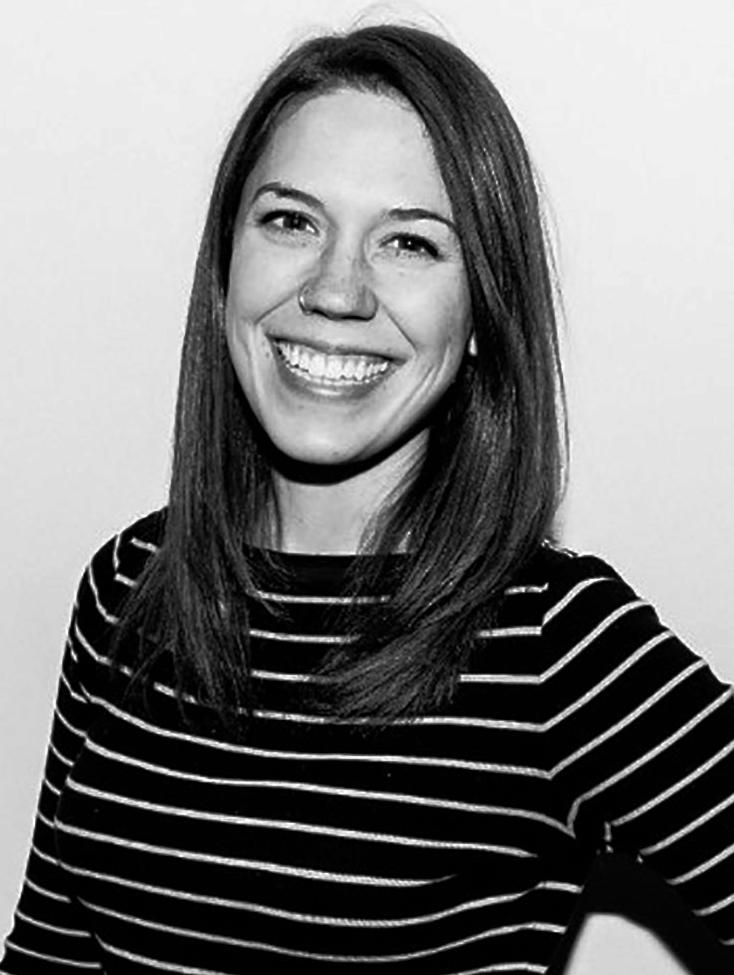
Looking back, how do you think your time at Drexel contributed to your success in the industry? Are there specific lessons you feel you've learned?
Drexel definitely helped with networking. The co-op program was an amazing experience that I didn't fully appreciate until later. It helped me market myself and find what I wanted to do. I also loved going to house shows during my time there. It was a fun time, meeting different bands and people from all over the country.
EAM's encompassing education helped as well. If a random classical music project comes up, I know how to market it and who to talk to. Networking allowed me to transition from publicity, which I didn't have a passion for, to digital marketing, which I love. It's about being open to different experiences and making connections.
(27) 00.00:03.00 00.00:04.00
J ade W inn-McNeil
B.S. Music Industry | Class of 2023
DIGITAL MARKETING COORDINATOR
@ SONY MUSIC ENTERTAINMENT
☞ Nashville, TN
Interviewed by Grace Breen (Class of ’26)
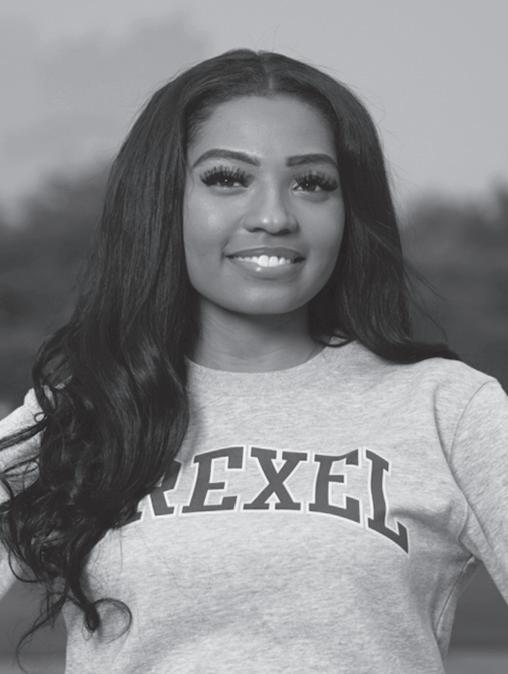
Are there any women in the music industry or in your personal life who you felt really inspired you and helped you get to the place you are today?
I can walk you through from my first internship up until present day. My first internship was for Ardmore Music Hall in Ardmore, PA. I had a male boss, and my relationship with him was positive, but I felt that he wasn’t someone that I looked to as a mentor. He actually introduced me to someone that helped me get my second internship at The Mann Center. At The Mann I had a female boss for the very first time, which I was very appreciative of. She guided me into realizing what I actually wanted to do, which was digital marketing for a label. From there she would send me different opportunities for different labels. That’s how I ended up at 300 Entertainment – I worked on the digital team. At 300 I had two female bosses who really worked with me and helped me build the skill sets that I needed that helped me to get the job I have today. I really appreciate the guidance that they gave me. We were able to build a relationship, a very personal relationship, not just work-wise. Today, my boss is also a female and I felt that she really took a leap on me being fresh out of college. I think that I was a great candidate, but I felt that she really took a leap of faith in my capabilities since I was so new, fresh out of school, and just looking for that entry role. But I believe that people being able to step outside of the workplace and actually building those personal, relationships with me, really made me feel comfortable in my workplace.
00.00:00.00 00.00:01.00 00.00:02.00
Did you ever feel discouraged or disadvantaged due to your gender while pursuing your college degree and starting your career in the music industry?
I didn’t feel that I had a disadvantage. Knowing that the music industry is predominantly run by men, I didn’t let that defeat my goals and what I wanted to do for my career. So, I actually let that be like a driver for me to reach out to different companies, show them my different interests, and how I could be a great asset to join different teams. My career goals have kind of shifted. I originally wanted to work in the live music industry and work with concerts and festivals, so my first few internships and jobs were at actually concert venues, but while working there it shifted into me wanting to work at labels, which is how I ended up at Sony today.
In your position now, could you give a general overview and description of what your day-to-day looks like?
My day-to-day includes paying out invoices for ads on Spotify, on Google, on YouTube, on Instagram, on TikTok. I receive all those invoices for the ads that we put out. I also get a chance to create content for the artists to post on their page when they have a new release. I create lyric videos and behind-the-scenes content, I create filters for both TikTok and Instagram. It’s just whatever they want, whatever they request, I’m able to make for their social media pages.
Do you think any other changes need to be made in the music industry on a basis of gender representation?
Changes-wise, I feel that there need to be more women who have those higher-up positions, so like presidents, and vice presidents. We don’t always see female figures in those positions. I would love for more companies to have females in those positions so that women are able to know that they are able to reach that point in their careers. I think that that could be a great change if we have more visibility of women in higher-up positions within the music industry.
Comparing between when you worked in live and working with a label, did you feel that you worked in an environment that had more men on the live side or the label side?
I felt that in the live side, I actually worked with more men. There were more men in the room with me compared to me now being at a label. The president of my label, she’s a female, so that’s great to see her in that position and know that that’s capable for women to achieve one day within the company. That the company is willing to put someone in that position. When I was working in the live scene I was surrounded more by men. You know, behind the stages, around the venues, definitely, in the live scene, there were more men.
Having graduated last year, what are your career goals going forward?
My career goals, of course, are to continue to work in digital marketing. I also really want to have more hands-on experience with creating events, personalized events for the artists and their fans. Working in that space is something that is one of my goals for the rest of my career.
(29)
00.00:03.00 00.00:04.00


(((SOUNDS OF US)))
RESONATING
CONFIDENT
CALM
ADVOCATING
ADVOCATING
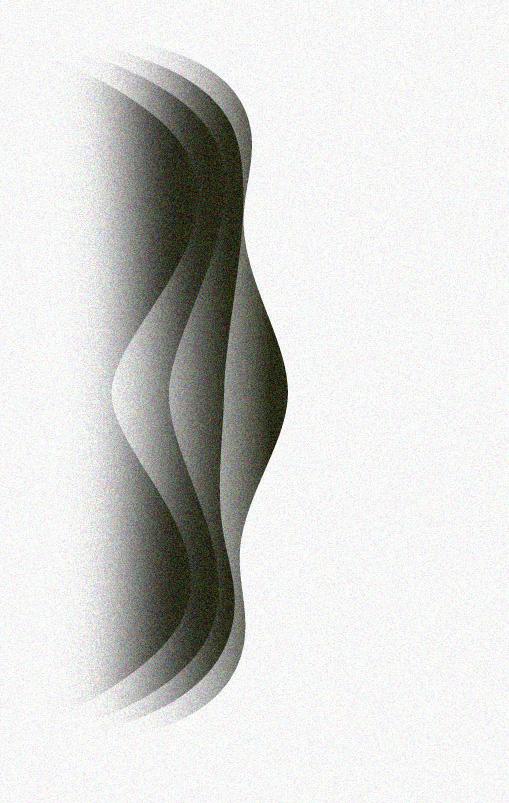

ENCOURAGING
CONFIDENT
IMPACTFUL
(ABOUT THE DESIGNER)
Howdy there! My name is Kathy and I'm a multidisciplinary designer with a passion for storytelling (especially ones we share)! I graduated from Westphal in 2022 and currently a Junior Designer at Broad Agency in Queens Village! When Monika first approached me for this project and essentially said I had free range, I was ECSTATIC.
Being a woman in the Art/Design industry, I heavily relate to Double Platinum's call for better women representation and recognition in the Music Industry. Strongly inspired by sound waves, I wanted to portray the interviewees' voices being amplified to the crowd, making large and resonating impact to those listening. We're here to make sure SHE's being heard.
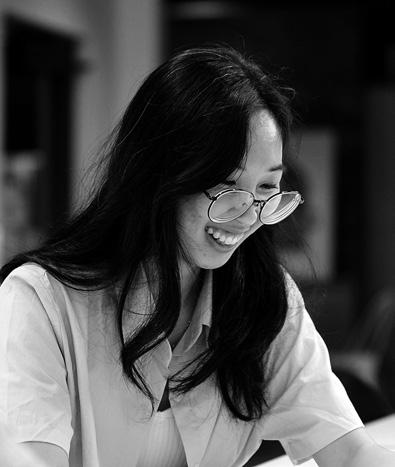
Kathy Chung
kathyvychung.com B.S. Graphic Design | Class of 2022 Graphic Designer @ Broad Agency Philadelphia, PA
Double Platinum Volume 2 was made possible due in part to the generous support of the Philadelphia Foundation, the Westphal Dean’s Office of I.D.E.A., and the Westphal DEIC.

(33)
Anaya
Jen
Rachel
Stacie
Kira
Diana
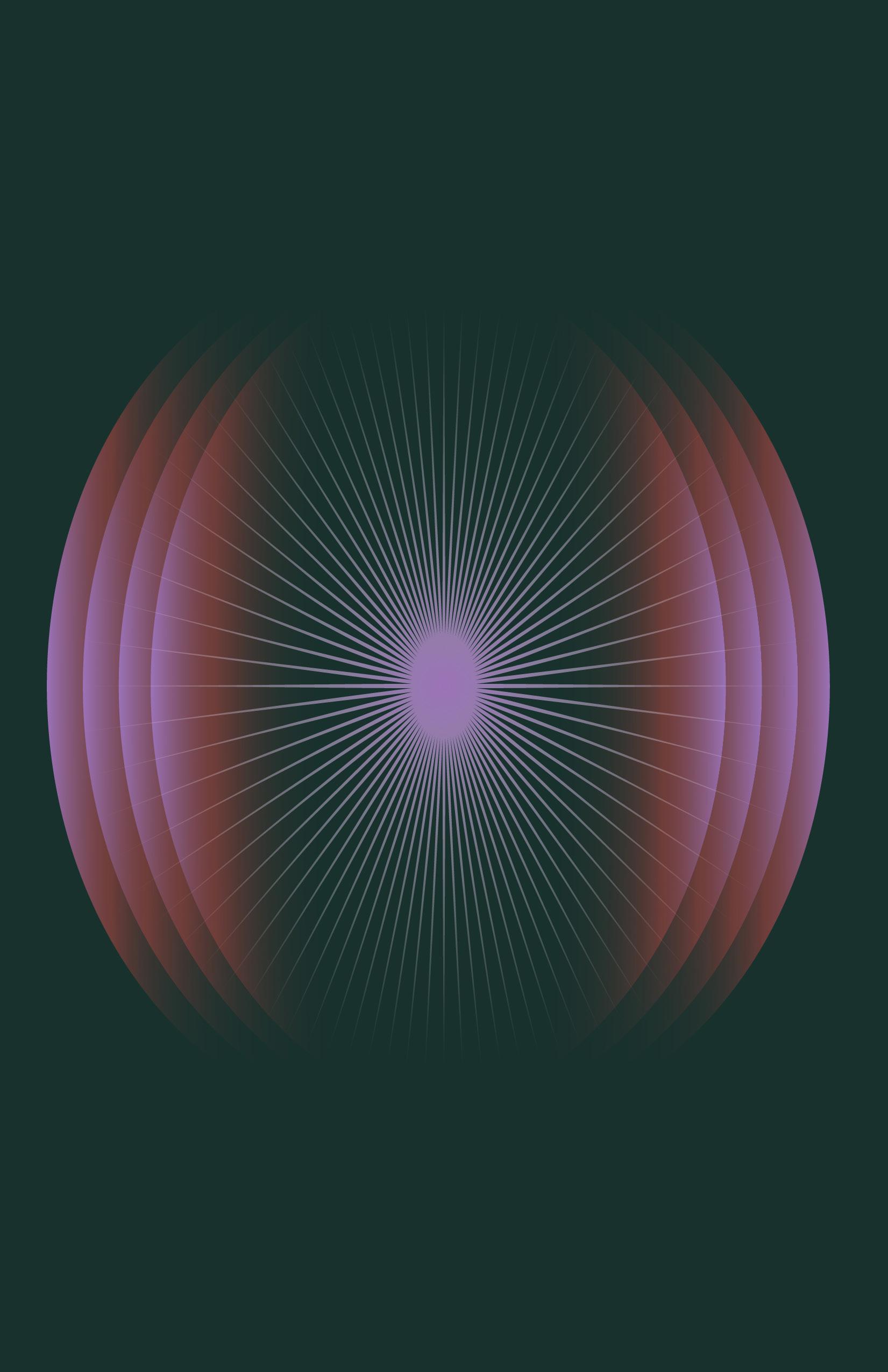
Melissa
Deb Riccardi
Olivia Timm
Jade Winn-McNeil
VOL.02 2024
Cherry
Corsilli
Gagliardi
George
Johnson
Jayla
Karlstrom
Lambert
Landerville
Caylie
Mackenzie Mason
Newhart














 Interviewed by Kellie Minus (Class of ‘25) and Imani Andoh (Class
Interviewed by Kellie Minus (Class of ‘25) and Imani Andoh (Class









